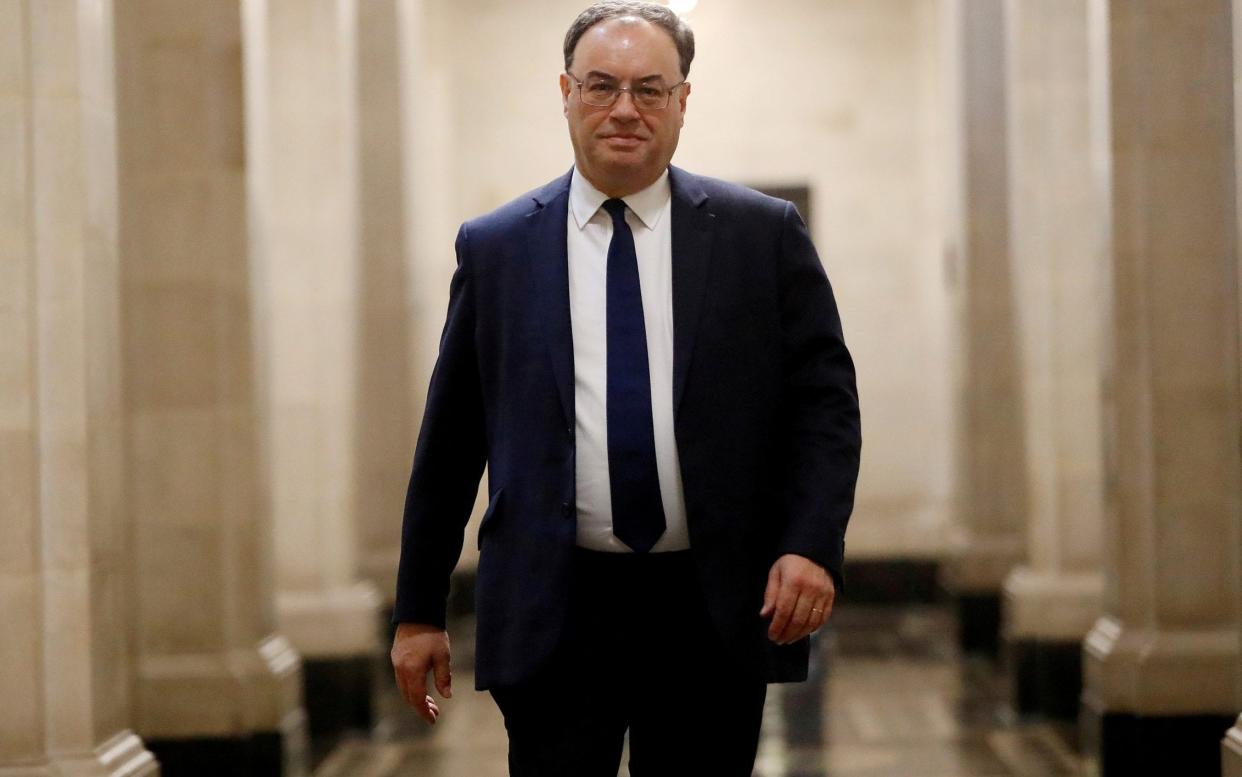Bank of England chief attacks peers for calling quantitative easing an ‘addiction’

The Governor of the Bank of England has lashed out at his predecessor and other peers for describing his institution's approach to monetary policy as an "addiction".
Andrew Bailey took aim at the Lords economic affairs committee after it suggested the Bank was hooked on printing money in a damning report published last month.
He took umbrage at the title of the report – "Quantitative easing [QE]: a dangerous addiction?" – saying it was inappropriate language for parliamentarians to adopt in this context. He argued that using the word in such a way undermined the pain of real addicts.
Appearing at a press conference on Thursday, Mr Bailey said: "That is a word that has a very damaging and very particular meaning to many people who are suffering. I think it is wrong to use that word loosely, and frankly I think it was a very poor choice of language."
Lord Forsyth of Drumlean, the Tory chairman of the committee, called the complaint "extraordinary".
Asked whether he regretted the language, the senior peer said: "This is a committee report, it is a unanimous report, it includes on it a number of very distinguished former Treasury ministers, a Treasury permanent secretary. It was very carefully considered, and we expect a considered response from the Bank."
The intervention raised eyebrows on Thursday night as it pitted Mr Bailey, who took the helm at the Bank last year, against his predecessor, Lord King of Lothbury, who sits on the 13-strong committee of peers.
The crossbencher served as Bank governor from 2003 to 2013 before handing the reins to Mark Carney.
Carolyn Harris, the Labour vice-chairman of the all-party parliamentary group on recovery from addictions, weighed in behind Mr Bailey over his complaint.
"That phraseology is a little bit inappropriate," she said. "Addiction is not only painful and life-changing, in many cases it also takes lives and wreaks devastation. It's not a word I would use unless specifically describing an inability to resist the things that create addiction, such as gambling, alcohol and drugs."
Mr Bailey addressed the substance of the report, which warned that quantitative easing was potentially leading to higher inflation and was increasingly seen as a tool to finance government spending.
He rejected allegations that the Bank was inappropriately funding the state through the programme it reprised to counter the economic damage done by the Covid pandemic.
"Every borrower benefits from it [quantitative easing], and 'every borrower' includes the Government," he said. "We're not doing it for the Government."
On Thursday, the Bank issued guidance on how it would scale back quantitative easing. Mr Bailey said this was not in response to the Lords report but because it was the "right thing to do".

